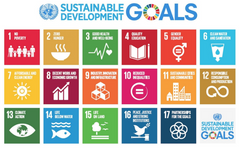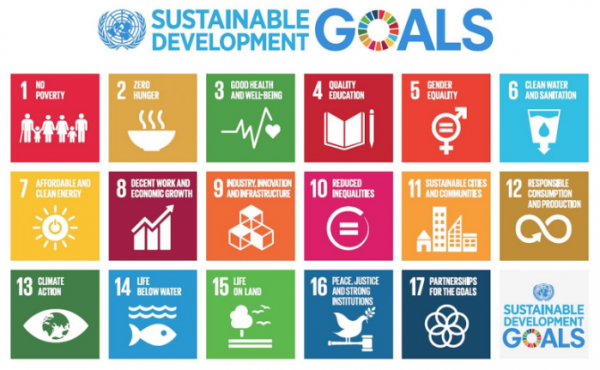The Path to Impact: Financing and Collective Impact for the SDGs,’ and it is designed to move engagement with the SDGs from understanding and alignment to action and impact.

“ In principle, the global community has the resources to address the needs of the 2030 Agenda and meet the SDGs. The challenge is finding the path to get there”. UN Global Compact’s USA Network Executive Forum attracted and inspired 200+ attendees from all over the US, in New York City, June 20, 2018. This USA network (www.globalcompactusa.org) is a voluntary initiative based on CEO commitments to implement universal sustainability principles + take steps to support UN goals.
An engaging full day on the 17 Sustainable Development Goals (SDGs) meeting of panelists, sustainability officers, investors, from small signatory companies like ours and multinational participants. Key opening by Lise Kingo, UNGC - you can’t manage what you don’t measure- and afternoon keynote by Mark Tercek, The Nature Conservancy (www.nature.org). It was my first time I heard Mark speak - a real pleasure to listen to a former investment banker who’s fundraising is more than half a billion USD per year! Mark explained some financial modeling on how to raise money for this global conservation organization - and how to engage with stakeholders. Check out their ‘Cool Green Science Blog’ - smarter by nature-: https://blog.nature.org/science/
Workshops on topics like Value Chain, Financing and Collective Impact, Practical Guide for Reporting on the SDGs, and to close a Plenary Panel. The ‘practical guide’ session was informative -and comforting!- as the takeaway was ‘report what you can on goals your company really can influence. Even major global players select (3-7?) SDGs they report on with clear targets and results. Speakers Maarten Simons, VP Global Citizenship, Edelman, and Alyson Genovese, Head of Corporate Relations, Global Reporting Initiative (GRI), moderated by Bernhard Frey. UN Global Compact, talked about how to report, illustrated by actual reporting examples. SULA NYC selected SDGs 17, 3 and 12 as priority and visualizations of reporting will attribute to clarity. More on ‘how to’:https://sdgcompass.org
(On GRI: International independent standards organization that helps businesses, governments, and other organizations understand and communicate their impacts on issues such as climate change, human rights and corruption. Edelman: Global communications marketing firm that partners with the world's leading businesses and organizations to evolve, promote and protect their brands and reputations. )
Based on the discussions, we estimate about half of the attendees were neither a signatory nor a participant, so we hope - and expect- the forum will be the driver for more companies to join UN Global Compact.
Quite a few participants represented European organizations and companies.

At the forum we met Marcus Bruns, Co-founder CEO of Young Sustainable Impact, a Norwegian based organization that aims to "Creating a global movement of entrepreneurial youth who could create and implement the solutions for our grand challenges; from poverty to climate change to gender equality”. (www.ysiglobal.com)
They coined the phrase ‘Earthpreneurs”: We are a community of mostly youth who are interested in sustainability and entrepreneurship. Together we tackle global challenges. Therefore contextual intelligence, business, and personal support seem vital. Let's try to support each other. Check out their Facebook presence.

Another sustainability perspective is provided by The International Institute for Sustainable Development (IISD). An independent think tank championing sustainable solutions to 21st–century problems. Their mission is to promote human development and environmental sustainability, through research, analysis and knowledge products that support sound policy-making.
Their website: www.iisd.org “Established in 1990, IISD has offices in Canada, Switzerland and the United States, ISD’s staff of over 120 people, plus over 50 associates and 100 consultants, come from across the globe and from many disciplines". "Our work impacts economies, communities, ecosystems, and lives in nearly 100 countries". IISD’ s work is organized around six programs and a core set of strategic goals. "Our brochure provides a snapshot of our strategy and programs".



